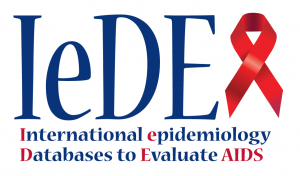For immediate release
National adoption of the World Health Organization’s (WHO) HIV treatment guidelines has been followed by marked increases in timely initiation of antiretroviral treatment (ART), according to a recent analysis of HIV patient data from 22 countries where national ART guidelines and policies expanded HIV treatment eligibility, following WHO recommendations in 2009 and 2013.
Increases in timely ART initiation were largest among young adults aged 16 to 24 years, and healthier patients with early stage disease—two groups that are known to have lower rates of retention in care and timely treatment initiation. At the same time, no decreases in ART initiation were observed among patients with more advanced HIV disease, indicating that sicker patients were not ‘crowded out’ by expanding treatment eligibility to include HIV patients with less advanced disease.
The study, which examined data on 284,740 HIV patients from the International epidemiology Databases to Evaluate AIDS (IeDEA) network, was published March 23, 2018 in PLOS Medicine.
“While many countries have adopted WHO guidelines as national policy, the potential impact of these treatment eligibility expansions on timely ART initiation has not been studied on a large scale or across multiple countries,” said Olga Tymejczyk, lead author and Research Scientist at the CUNY Institute for Implementation Science in Population Health (ISPH) at the CUNY Graduate School of Public Health and Health Policy. “These findings indicate that expanded treatment guidelines were followed by considerably improved and timely uptake of ART among groups with previously lower ART initiation rates, without negatively affecting the sickest patients.”
The study’s results underscore the importance of countries expanding HIV treatment guidelines to improve access to care. “Testing and treating all persons with HIV as soon as possible after they become infected is a critical strategy to reduce the 2 million new HIV infections that occur globally each year,” said Dr. Denis Nash, ISPH Executive Director and the study’s senior author. “If we can reduce barriers to treatment for those with early stage HIV, we can limit onward transmission of the virus.”
Critical questions remain, including whether increases in ART initiation rates translate into subsequent improvements in retention in care and HIV viral suppression, the goal of HIV treatment. In addition, the authors note that similar analyses should be done to assess rates of timely ART initiation following the adoption of WHO’s most recent 2015 recommendation for universal treatment of all persons with HIV. “Many countries around the world have recently adopted national policies to treat all persons with HIV as soon as possible after diagnosis,” said Dr. Nash. “The early data regarding the experience of these countries is just now becoming available, and it is very important to see what they tell us.” Nash also emphasized that treatment guideline expansion needs to be accompanied by effective testing programs that get people diagnosed and linked to care without delay, so they can start treatment even earlier. “Now is the time to double down on our investments to rein in the HIV epidemic, not back off on them.”
Funding: Research reported in this publication was supported by the National Institute of Allergy and Infectious Diseases [www.niaid.nih.gov] of the US National Institutes of Health.
About the Institute for Implementation Science in Population Health at the City University of New York.
The CUNY Institute for Implementation Science in Population Health (ISPH) was founded on the notion that substantial improvements in population health can be efficiently achieved through better implementation of existing strategies, policies, and interventions across multiple sectors. We study how to translate and scale-up evidence-based interventions and policies within clinical and community settings in order to improve population health and reduce health disparities. CUNY ISPH. Pursuing population health gains through better implementation. www.cunyisph.org. Follow us on Twitter: @CUNYISPH.
For more information, contact:
Denis Nash, PhD, MPH
Professor of Epidemiology, CUNY School of Public Health
Executive Director, CUNY Institute for Implementation Science
347-331-6554
[email protected]
